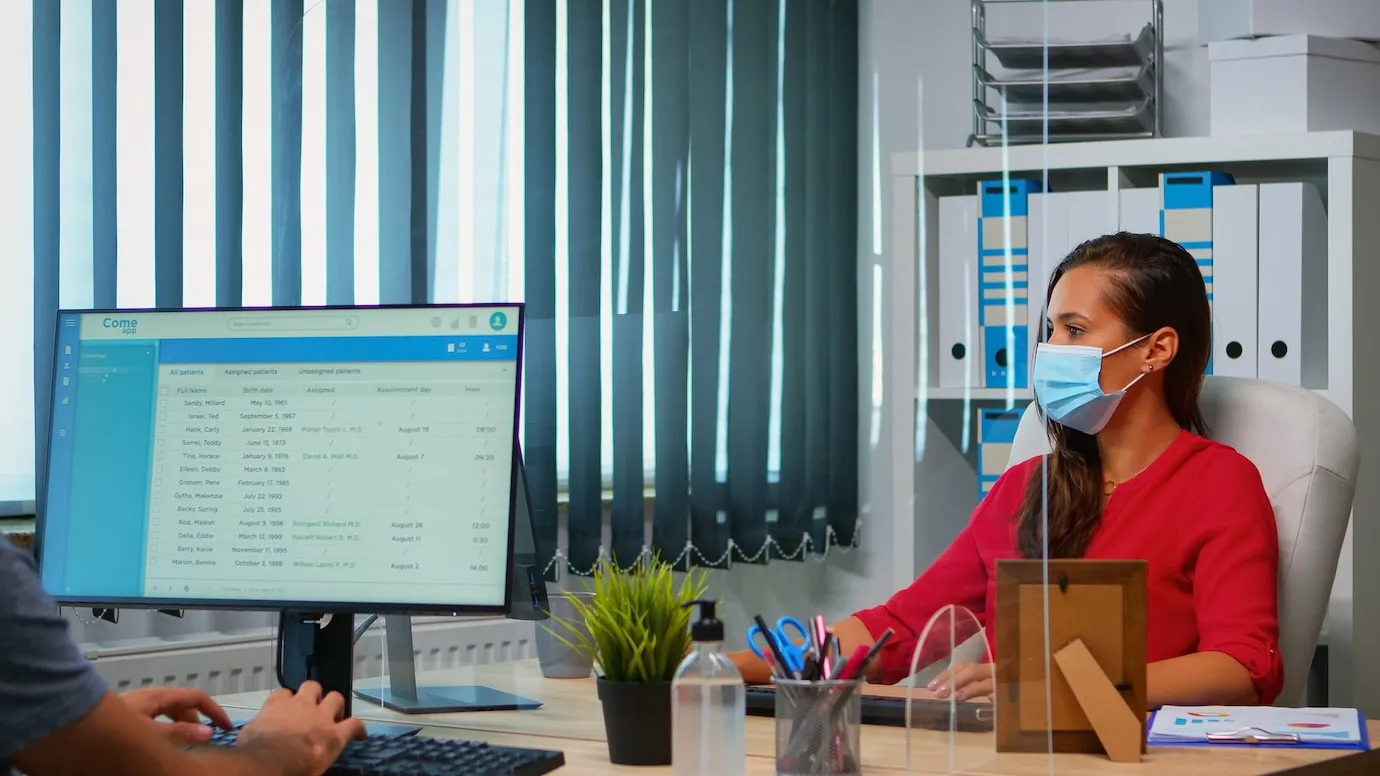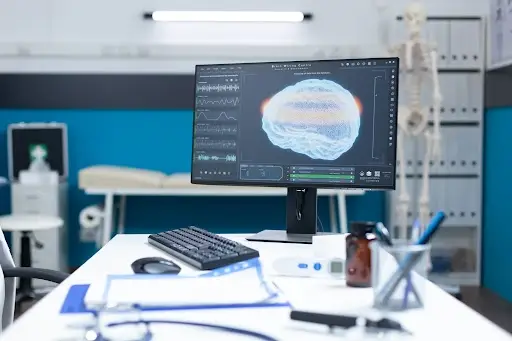Impacts of Patient Engagement on RCM in Medical Billing
Revenue Cycle Management (RCM) plays an important role in medical billing. It includes everything from registering a patient to billing and collections. Patient engagement is key to making RCM work well. When patients are engaged, they provide accurate information, understand their bills, and pay on time. Let’s explore how patient engagement helps improve RCM in medical billing.
Understanding Patient Engagement
Understanding Patient Engagement
Patient involvement means patients are not only engaged with their healthcare but are in the very heart of their healthcare. This association can range from having consultations with healthcare providers to exploring health issues in detail and comprehending the billing process. The degree of engagement of patients contributes to the likelihood of receiving correct information and compliance with prescribed drugs.
Benefits of Patient Engagement in Healthcare
The patient-centered care model is the involvement of the patient and engagement in healthcare are the key factors that lead to the improvement of the health results. Several studies have shown that when patients and healthcare professionals are actively involved, they are more likely to adhere to treatment regimens and attend follow-up appointments. Therefore, healthcare and practitioners will have enhancement of service delivery through the reduction of medical errors and improvement of service quality. Engaged patients also catalyze the revenue cycle process to be streamlined by increasing the likelihood that they will comprehend their bills instead of billing being done unnecessarily, which will, in turn, increase the cases of late payment.
The Link Between Patient Engagement and RCM
Improved Patient Information Accuracy
Empowered patients tend to be friends who give up-to-date and accurate details. Such accuracy is the most critical parameter, as it may generate a claim denial if there is a mistake in patient information. The patient who actively checks the correct information helps to prevent an error that gave a rampage to the submitting of bills.
Enhanced Communication and Education
In the patient-engagement process, a patient shares their stories and concerns with the doctors and nurses. When an expressed communication is clear enough patients have no trouble in understanding the billing procedure. In addition to this, it removes the possibility of uncertainty and miscommunication, which contributes to a reduction in the volume of errors in billing.
Increased Payment Compliance
Health center patients who are conscious of their bills and participate in their own care are more likely to fulfill their bills in a prompt manner. This compliance makes payable debts easier and quicker to settle and very few overdue accounts to deal with. In the issue of healthcare payment, education plays a big part, as being a patient in whom the financier is not likely to dispute a medical bill and, therefore, is willing to pay it in full can be attributed to being educated on the payment mechanisms.
Impact of Patient Engagement on Medical Billing
Reduction in Claim Denials
In the case when claims contain errors like incorrect information or details of billing, then it’s a claim denial. Albeit active patients who provide accurate information, they tend to reduce the possibility of claims denial. Therefore, there are fewer hiccups in billing, and payment is provided as and when the bill should be paid.
Improved Billing Accuracy
The engagement of the patient along with the efficient billing process. If the patients realize their bills, they will check for mistakes, which is a great smith breeze because it decreases the chances of guilty billing. It follows that this high level of accuracy helps to curb disagreements and expedites the debt clearance process.
Faster Collections
Engaged patients and those who pay by themselves and on time aid in faster collections. Consequently, this immediacy of payment enables healthcare institutions to have a steady cash flow that, in turn, enables them to be more patient-focused.
Decreased Administrative Burden
Patients’ intensive engagement helps reduce the number of things that need to be taken care of. In such automation, staff would be spared the burden of dealing with each error that requires attention and invoicing disputes, enabling them to be fully involved in other crucial work. Having an efficient health system will not only be useful for healthcare providers and patients but also save everyone’s money.
Revenue Cycle Management Technology
Overview of RCM Technology
Revenue cycle management technology includes the tools as well as software responsible for billing, reporting, and collections. These tools, which promote efficiency and increased patient involvement, make it easier for healthcare professionals to fulfill their responsibilities. E.g., Electronic health records (EHR) ensure patients are seen by the same doctor each time they visit their facility so vital history can be recorded, organized, and studied by healthcare professionals during treatment.
How Technology Supports Patient Engagement
Technology, a domain intermediary, is a significant tool for patient engagement. To meet patient needs, portals of patients, as well as online tools, allow their access to their medical records, bills, and payments. This technology enables patients to stay engaged and better understand how the billing accounts are handled.
Role of Electronic Health Records (EHR)
The very backbone of RCM is normally EHR. EHRs have patient information within them organized in such a way that it is convenient and won’t demand going back frequently. With technology taking care of this, patient information does not empath including in medical billing and reducing claim denials.
Automation in Revenue Cycle Management
In addition to identifying at-risk patients and reducing hospital readmissions, automation can make RCM processes more efficient. This leads to fewer manually-oriented tasks that include data input, and error-prevention is enhanced. Automation can also be used to send automatic reminders to communicate their upcoming bills, which all end up as a push factor upon paying.
Revenue Cycle Medical Billing
Medical Billing Process Overview
Medical billing involves the process in which bills are sent to insurance carriers, and the receivables are collected from patients. It all begins with the patient’s registration and ends with the payment process. Medical billing performed precisely is the main reason for a cycle of successful revenues.
Importance of Accurate Coding
Using pivoting detailed to medical invoicing is essential. If the coding is wrong, the claim may not be paid or may end up being paid late. An accurate coding decreases the claim denial rate and makes the invoicing result a smooth one.
Role of RCM in Medical Billing
RCM as a unit is valuable. It contributes to the efficiency of medical billing. It enables accurate and smooth administration, as it makes sure the patient registration and collections processes are all done well and on time. Meanwhile, streamline this process to reduce the variance in revenue cycle medical billing and bolster financial results for healthcare providers.
Challenges in Medical Billing
Medical billing is not an easy industry; there is a high risk of claim denials, and the repayment policy is not the best. In addition, through the implementation of RCM and patient engagement, the chief problem can be dealt with adequately. Eliminating breakdowns and enhancing communication means resolution of the main obstructions.

MedsRole: Transforming Medical Billing with Revenue Cycle Management
Experience seamlessly with MedsRole‘s RCM in medical billing solutions. We provide a comprehensive suite of services that streamline patient registration, billing, claims management, and collections. Our advanced technology and data-driven approach ensure accurate coding, reduced claim denials, and faster payment processing. With MedsRole, you get reliable support, efficient RCM processes, and improved patient engagement. Trust us to transform your medical billing experience and enhance your revenue cycle. Join MedsRole today and take the stress out of medical billing.








